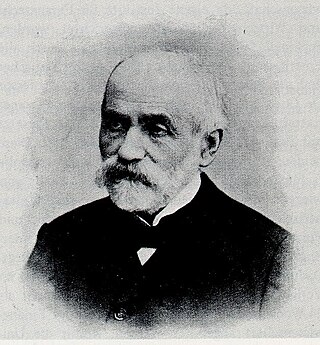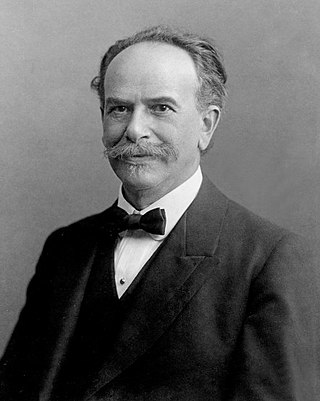Related Research Articles

Anthropology is the scientific study of humanity, concerned with human behavior, human biology, cultures, societies, and linguistics, in both the present and past, including past human species. Social anthropology studies patterns of behavior, while cultural anthropology studies cultural meaning, including norms and values. A portmanteau term sociocultural anthropology is commonly used today. Linguistic anthropology studies how language influences social life. Biological or physical anthropology studies the biological development of humans.

Cultural anthropology is a branch of anthropology focused on the study of cultural variation among humans. It is in contrast to social anthropology, which perceives cultural variation as a subset of a posited anthropological constant. The term sociocultural anthropology includes both cultural and social anthropology traditions.

Ethnocentrism in social science and anthropology—as well as in colloquial English discourse—means to apply one's own culture or ethnicity as a frame of reference to judge other cultures, practices, behaviors, beliefs, and people, instead of using the standards of the particular culture involved. Since this judgment is often negative, some people also use the term to refer to the belief that one's culture is superior to, or more correct or normal than, all others—especially regarding the distinctions that define each ethnicity's cultural identity, such as language, behavior, customs, and religion. In common usage, it can also simply mean any culturally biased judgment. For example, ethnocentrism can be seen in the common portrayals of the Global South and the Global North.

Franz Uri Boas was a German-American anthropologist and a pioneer of modern anthropology who has been called the "Father of American Anthropology". His work is associated with the movements known as historical particularism and cultural relativism.
Cultural relativism is the idea that a person's beliefs and practices should be understood based on that person's own culture. Proponents of cultural relativism also tend to argue that the norms and values of one culture should not be evaluated using the norms and values of another.

Bronisław Kasper Malinowski was a Polish-British anthropologist and ethnologist whose writings on ethnography, social theory, and field research have exerted a lasting influence on the discipline of anthropology.
An anthropologist is a person engaged in the practice of anthropology. Anthropology is the study of aspects of humans within past and present societies. Social anthropology, cultural anthropology and philosophical anthropology study the norms and values of societies. Linguistic anthropology studies how language affects social life, while economic anthropology studies human economic behavior. Biological (physical), forensic and medical anthropology study the biological development of humans, the application of biological anthropology in a legal setting and the study of diseases and their impacts on humans over time, respectively.
Participant observation is one type of data collection method by practitioner-scholars typically used in qualitative research and ethnography. This type of methodology is employed in many disciplines, particularly anthropology, sociology, communication studies, human geography, and social psychology. Its aim is to gain a close and intimate familiarity with a given group of individuals and their practices through an intensive involvement with people in their cultural environment, usually over an extended period of time.
Applied anthropology is the practical application of anthropological theories, methods, and practices to the analysis and solution of practical problems. The term was first put forward by Daniel G. Brinton in his paper titled, "The Aims of Anthropology" and John Van Willengen simply defined applied anthropology as "anthropology put to use" Applied anthropology includes conducting research with a primary or tertiary purpose to solve real-world problems in areas such as public health, education, government, business, and more.

Alfred Reginald Radcliffe-Brown, FBA was an English social anthropologist who helped further develop the theory of structural functionalism.
Sociocultural anthropology is a term used to refer to social anthropology and cultural anthropology together. It is one of the four main branches of anthropology. Sociocultural anthropologists focus on the study of society and culture, while often interested in cultural diversity and universalism.

Field research, field studies, or fieldwork is the collection of raw data outside a laboratory, library, or workplace setting. The approaches and methods used in field research vary across disciplines. For example, biologists who conduct field research may simply observe animals interacting with their environments, whereas social scientists conducting field research may interview or observe people in their natural environments to learn their languages, folklore, and social structures.
The Society for Applied Anthropology (SfAA) is a worldwide organization for the Applied Social Sciences, established "to promote the integration of anthropological perspectives and methods in solving human problems throughout the world; to advocate for fair and just public policy based upon sound research; to promote public recognition of anthropology as a profession; and to support the continuing professionalization of the field." Members include academic as well as practicing and applied anthropologists. The Society is unique among professional associations in membership and purpose – and in representing the interests of professionals in a wide range of settings including academia, business, law, public health, medicine, environment, and government. The unifying factor is a commitment to making an impact on the quality of life in the world. The Society publishes two journals: Human Organization and Practicing Anthropology. The SfAA was founded in 1941 and has maintained its status as an important resource for practicing and academic anthropologists alike.
Legal anthropology, also known as the anthropology of laws, is a sub-discipline of anthropology follows inter disciplinary approach which specializes in "the cross-cultural study of social ordering". The questions that Legal Anthropologists seek to answer concern how is law present in cultures? How does it manifest? How may anthropologists contribute to understandings of law?
Ethnoscience has been defined as an attempt "to reconstitute what serves as science for others, their practices of looking after themselves and their bodies, their botanical knowledge, but also their forms of classification, of making connections, etc.".
Social anthropology is the study of patterns of behaviour in human societies and cultures. It is the dominant constituent of anthropology throughout the United Kingdom and much of Europe, where it is distinguished from cultural anthropology. In the United States, social anthropology is commonly subsumed within cultural anthropology or sociocultural anthropology.

Melvin Lawrence Ember was an American cultural anthropologist and cross-cultural researcher with wide-ranging interests who combined an active research career with writing for nonprofessionals.
Community-based program design is a social method for designing programs that enables social service providers, organizers, designers and evaluators to serve specific communities in their own environment. This program design method depends on the participatory approach of community development often associated with community-based social work, and is often employed by community organizations. From this approach, program designers assess the needs and resources existing within a community, and, involving community stakeholders in the process, attempt to create a sustainable and equitable solution to address the community's needs.
Jean J. Schensul is a medical anthropologist and senior scientist at The Institute for Community Research, in Hartford, Connecticut. Dr. Schensul is most notable for her research on HIV/AIDS prevention and other health-related research in the United States, as well as her extensive writing on ethnographic research methods. She has made notable contributions to the field of applied anthropology, with her work on structural interventions to health disparities leading to the development of new organizations, community research partnerships, and community/university associations. Schensul’s work has been dedicated to community-based research on topics such as senior health, education, and substance abuse, among others.

American anthropology has culture as its central and unifying concept. This most commonly refers to the universal human capacity to classify and encode human experiences symbolically, and to communicate symbolically encoded experiences socially. American anthropology is organized into four fields, each of which plays an important role in research on culture:
- biological anthropology
- linguistic anthropology
- cultural anthropology
- archaeology
References
- ↑ "What is Anthropology: Fields of Anthropology". www2.palomar.edu. Retrieved 30 November 2020.
- ↑ "Applied Anthropology". obo. Retrieved 30 November 2020.
- ↑ Bennett, Linda A. "Applied Anthropology". Applied Anthropology.
- 1 2 3 4 5 6 Russell, Bernard (2014). Handbook of Methods in Cultural Anthropology. Rowman & Littlefield Publishers. pp. 2–4. ISBN 978-0759120716.
- ↑ "anthropology | Definition, Branches, History, & Facts". Encyclopædia Britannica. Retrieved 30 November 2020.
- ↑ amysantee (13 June 2011). "A brief history of Applied Anthropology". Anthropologizing. Retrieved 30 November 2020.
- ↑ "Franz Boas – Biography, Facts and Pictures" . Retrieved 30 November 2020.
- ↑ "Bronisław Malinowski | Polish-born British anthropologist". Encyclopædia Britannica. Retrieved 30 November 2020.
- ↑ "Theory + Anthropology [licensed for non-commercial use only] / Functionalism". anthrotheory.pbworks.com. Retrieved 30 November 2020.
- ↑ "Margaret Mead | Biography, Theory, Books, & Facts". Encyclopædia Britannica. Retrieved 30 November 2020.